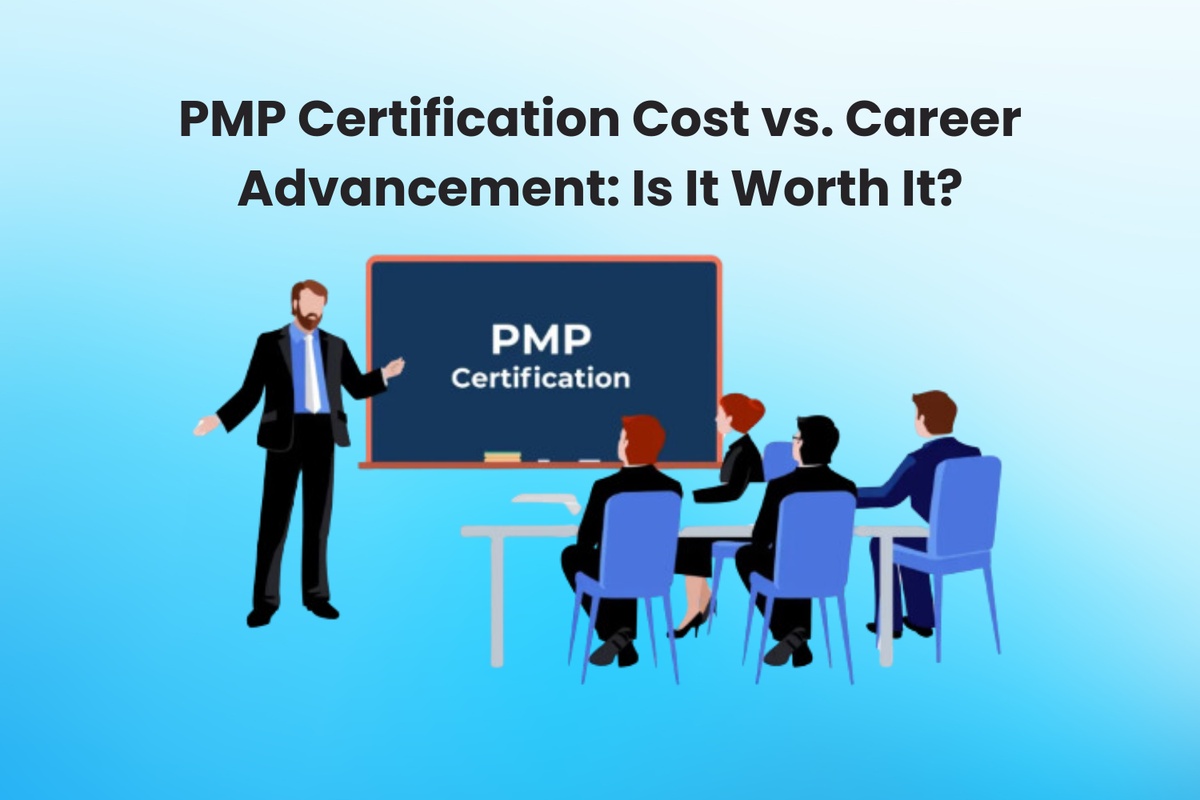Embarking on the journey to attain a Project Management Professional (PMP) certification can be a pivotal decision in one's career. The allure of professional growth and increased earning potential often comes hand in hand with the consideration of the PMP Certification Cost. In this blog, we'll explore the dynamic relationship between the financial investment required for PMP certification and the potential career advancement it promises.
Is the cost justified by the benefits it brings to your professional trajectory? Let's delve into the intricacies of PMP Certification and weigh the expenses against the invaluable returns it could yield.
Understanding the PMP Certification Landscape
When considering a significant step like acquiring PMP certification, understanding the financial landscape is crucial. The PMP certification cost encompasses various elements, including exam fees, study materials, and possibly training courses. The Project Management Institute (PMI), the governing body for PMP certification, sets the standard for exam fees. However, it's essential to note that the costs may vary based on factors like PMI membership status and regional pricing. A prudent approach involves factoring in study materials, books, and potentially enrolling in PMP training courses, which can add to the overall expenditure.
The PMP Certification ROI: A Strategic Investment
Investing in a PMP certification is akin to planting seeds for career growth. The knowledge and skills acquired during the certification process position individuals as adept project managers, adding value to their organisations. This, in turn, can open doors to promotions, leadership roles, and increased responsibilities. The correlation between PMP Certification and career advancement is not merely anecdotal; studies have shown that PMP-certified professionals are more likely to hold leadership positions and command higher salaries compared to their non-certified counterparts.
Calculating the True Worth: Monetary Returns and Beyond
While the PMP certification cost may seem significant initially, the potential salary increment that follows certification often justifies the investment. PMP-certified professionals, on average, earn higher salaries than their non-certified peers. The certification acts as a badge of expertise, demonstrating to employers that an individual possesses the necessary skills to manage complex projects successfully. This added value translates into a tangible return on investment in the form of increased earning potential.
Navigating the Financial Commitment: Tips for Cost Optimisation
Recognising that the PMP certification cost is an investment in one's future, it's prudent to explore strategies for cost optimisation. Joining the PMI as a member can offer discounted exam fees, making membership a sensible choice for those committed to pursuing PMP certification. Additionally, self-study using quality resources and targeted exam preparation can help reduce the need for expensive training courses. Balancing the budget while ensuring comprehensive preparation is key to optimising the financial commitment associated with PMP certification.
The Hidden Benefits: Beyond Financial Returns
While the monetary returns are substantial, the benefits of PMP certification extend beyond financial gains. The certification process itself is a journey of continuous learning and professional development. It equips individuals with a robust skill set, including risk management, communication, and leadership – skills that are invaluable in any professional context. The intangible benefits of personal growth and confidence gained through the certification process contribute significantly to an individual's overall career trajectory.
Making the Decision: Is PMP Certification Worth It for You?
As with any significant investment, determining the worth of PMP Certification involves a personalised assessment. Consider your career goals, the industry you are in, and the demand for PMP-certified professionals in your region. Evaluate the potential return on investment both in monetary terms and in terms of career advancement and personal growth. Additionally, seek advice from mentors or professionals who have undergone the PMP certification journey to gain insights into their experiences and the impact it had on their careers.
Conclusion
In conclusion, the decision to pursue PMP certification is a nuanced one that requires careful consideration of both the financial investment and the potential career advancement it offers. The PMP certification cost should be viewed as a strategic investment in one's professional future, with the understanding that the returns extend beyond immediate financial gains.
Balancing the scales between the cost and the benefits involves a thoughtful approach to optimise expenses and maximise the long-term value gained through PMP certification. As you navigate this decision, remember that the journey towards PMP certification is not just a financial transaction; it's a transformative experience that can reshape your career trajectory.


No comments yet